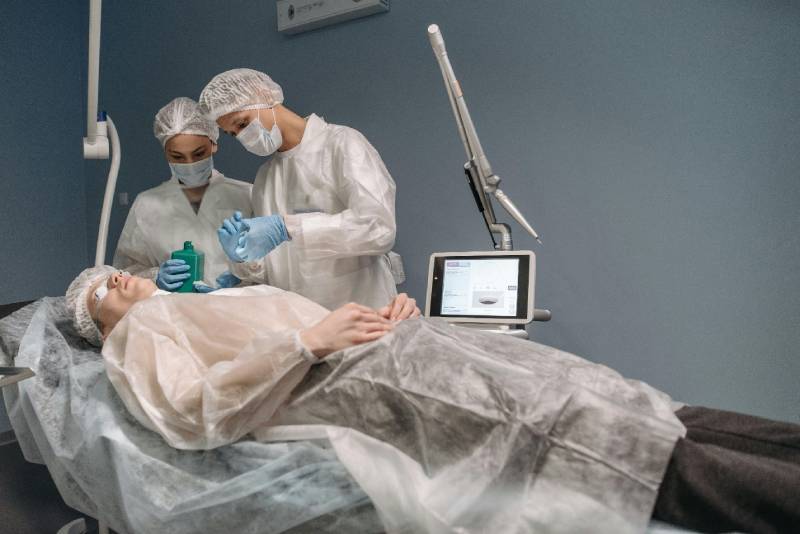Thinking about getting a cosmetic procedure done? It can be exciting—but also a little overwhelming. There are so many things to think about, from choosing the right doctor to understanding what to expect before and after.
That’s why preparing ahead is so important. The more informed you are, the more confident you’ll feel every step of the way. Knowing what questions to ask and what decisions to consider can help you avoid surprises. Whether it’s your first time or not, planning gives you more control and helps you make better choices.
Know Your Why
Before you book a consultation, take a moment to think about your reasons. Is this something you’ve wanted for years, or is it a quick decision? Are you doing it for yourself or to meet someone else’s expectations? Being honest with yourself will help you stay grounded. When your motivation is clear and personal, you’re more likely to be happy with the outcome and feel more confident in your decision-making process.
Doing Your Homework
Taking time to learn about the procedure can save you stress later on. Look into how it works, what recovery looks like, and what results to expect. This research helps you feel more prepared and less nervous going into your appointments. If you’re planning to get breast implants, for instance, going through a breast implant patient checklist will guide you through the key questions to ask during your consultation. It also highlights potential risks such as implant rupture and capsular contracture. It’s a clear, easy way to feel more informed and ready to move forward. When you’re well-prepared, you’re less likely to panic and stress before the procedure.
Choosing the Right Surgeon
Picking the right surgeon is one of the most important steps. You want someone who is board-certified, well-trained, and experienced in the type of procedure you’re planning. Ask how many similar procedures they’ve done and look at their before-and-after photos. A good surgeon should also make you feel heard. You should feel comfortable talking openly, and your surgeon should explain things clearly and honestly. Their values and style should also match what you’re hoping to achieve with your results.
What You Should Be Asking During the Consultation
Your consultation is the perfect time to ask all your questions. Don’t hold back—this is your time to learn. Ask about the full process, including how long recovery might take, possible side effects, and what the end results will look like. You should also ask what happens if things don’t go as planned. Good surgeons will be open and honest with you. If they rush you or avoid tough questions, that’s a red flag.
Understanding the Risks and Complications
Every medical procedure comes with risks, and cosmetic procedures are no different. Common complications include infection, bleeding, poor healing, or reactions to anesthesia. Depending on what you’re getting done, there may also be specific risks to know about. These are not meant to scare you—they’re meant to prepare you. A responsible doctor will take time to explain all of this clearly. They should also give you realistic expectations about both the best-case and worst-case outcomes. Knowing what could go wrong doesn’t mean something will—it just gives you the full picture so you can make a choice that feels right and safe for you.
What to Expect and How to Prepare for Recovery
Recovery doesn’t end after you leave the clinic. Depending on the procedure, you may need days or weeks to feel normal. It’s important to prepare your home ahead of time—have comfortable clothing, your medications, and help from a friend or family member. Ask your doctor about when you can return to work, exercise, and daily routines. The better prepared you are, the smoother your healing will be, and the fewer surprises you’ll face during the process.
Budgeting Beyond the Surgeon’s Fee
The cost of the procedure often goes beyond the surgeon’s price. There may be charges for the facility, anesthesia, medical tests, and follow-up visits. Be sure to ask for a full breakdown of all costs before you decide. Some clinics offer payment plans or financing options. It’s also a good idea to plan for any unexpected expenses. Taking the time to understand the total cost helps avoid financial stress later and allows you to focus on your recovery with peace of mind.
Lifestyle Considerations Before and After
Your daily habits can affect both the procedure and the recovery. You might need to stop smoking, pause certain medications, or change your diet. After the procedure, you’ll need to limit exercise and avoid heavy lifting for a while. Some changes are temporary, while others may need to become long-term habits to protect your results. Your doctor will give you guidelines, and following them carefully will help you heal better and keep your results looking the way you want.
Second Opinions and Red Flags
It’s always okay to get a second opinion. In fact, it’s a smart move, especially if you’re unsure or feel pressured. A second or third consultation can help confirm your plan or reveal better options. Pay attention to red flags—like if a doctor rushes you, avoids your questions, or doesn’t explain things clearly. You should never feel forced or uncertain. A good provider welcomes your questions and supports your decision-making process every step of the way.
Documenting and Planning
Create a personal checklist to stay organized. Include your consultation notes, consent forms, medication lists, and appointment dates. This helps you track everything and reduces stress as the day approaches. Write down your doctor’s instructions and keep all important information in one place. Having a plan for the days before and after your procedure will help you feel more prepared. It’s a simple way to stay on top of things and ensure you don’t forget any important steps.
Making the decision to go ahead with a cosmetic procedure is personal. It’s not just about looks—it’s about how you feel and the confidence you want to gain. But feeling good starts with being well-informed. Asking the right questions, planning ahead, and knowing what to expect can help make the whole experience better. Use trusted tools like the breast implant patient checklist; don’t be afraid to take your time. This is your body and your choice. When you’re prepared, you’re not just ready—you’re empowered to make your best decision.















